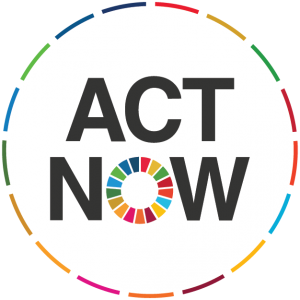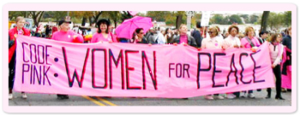May SDG: Decent Work and Economic Growth.

This month Sustainable Development Goal the Local Peace Economy is working on is Decent Work And Economic Growth. To promote inclusive and sustainable economic growth, employment and decent work for all. Sustained and inclusive economic growth can drive progress, create decent jobs for and improve living standards.
Roughly half of the world’s population still lives on the equivalent of about US$2 a day. In addition to creating jobs, conditions need to be improved for some 780 million women and men who are working, but not earning enough to lift themselves and their families out of poverty – poverty eradication is only possible through stable and well-paid jobs. America workers needs well paying jobs as well, America’s middle class has become part of the working poor.
Fifty percent of the U.S. workforce earned less than $35,000 in 2019, according to the Social Security Administration’s (SSA) annual wage statistics and as result live paycheck to paycheck. For many this means having difficulty covering costs such as food, rent or car payments and having little to no savings. More than a third of Americans said they could not cover an unexpected $400 home repair or hospital bill without going into debt — or at all. The volume of workers included in each wage interval declines more noticeably after earnings brackets surpass $35,000. Roughly 90 percent of the workforce earned $110,000 or less in net compensation last year, and statistics showed about 1 million people, or fewer, fell within net compensation intervals greater than $120,00
A new report from the Brookings Institute finds that while top retailers’ profits have “soared” during the coronavirus pandemic, pay for frontline workers has barely budged.
Brookings analyzed the earnings and compensation of frontline employees at 13 of the biggest retailers in the U.S. between March 13 and November 19 of this year, including Albertsons, Amazon, Best Buy, Costco, CVS Health, Dollar General, Home Depot, Kroger, Target and Walmart. While the companies in the report made an average of 39% more in profit this year compared to 2019, pay for their essential workers increased by just 10% on average, or $1.11 per hour, over the course of the pandemic.
Some of the least generous companies had the largest profits: Amazon and Walmart increased profits by of 53% and 45%, respectively, compared to last year. Their workers received an extra $0.95 per hour (Amazon) and $0.63 per hour (Walmart) since March. That is a 6% increase.
Kroger, the country’s largest supermarket operator, provided a $2 per hour pay increase from March to mid-May and gave employees a one-time $400 bonus. Since then, it has offered some of the lowest wages in the industry, according to Brookings, offering $10 per hour on average. Meanwhile, the company’s profits increased by 90% from 2019 to 2020
In 2020 Kroger’s dividend increased by 13%, making the 14th consecutive year of dividend increase, while workers did not get similar pay increases. In addition the company authorized a $1 billion share buyback program. These programs benefit shareholders in the company, not the workers who put their lives at risks to make the company those high profits. The workers share of the profit did not make them enough to cover the rising costs of their bills.
An extra $1.11 an hour, what are you going pay with that? For decades, Systemic 1% Capitalism, has kept U.S. wages flat and they have failed to keep pace with the rising costs of what many perceive as essential ingredients for a successful American life: to make enough money to support a home and a family, put money in the bank for retirement, health care and good education for their kids or themselves. Yet for many student loans are a yoke around young people the minute they graduate and keeps them from reaching the American Dream. Debt and no savings keep many parents from retiring. Medical bills can set people back for years. A home mortgage and utilities can bite off half of a monthly income, especially in big cities. This systemic 1% capitalism has turned the middle class into the working poor.
This economic control, in free and non-free countries, has kept workers from sharing in the trillions of dollars in profits they help create. Instead of rewarding the workers for all their hand work or helping small business, they moved the money offshore so taxes don’t have to be paid. How is that helping families pay their bills or the planet by developing sustainable industries? This type of capitalism does not promote inclusive and sustainable economic growth, employment and decent work for all. It is not economic freedom for the worker, it is economic slavery. In order to have well paying jobs capitalism has to become democratized. That means profit sharing.
What can be done to achieve economic democracy? The first thing people need to realize is what it means when as republican voters say “I vote for what is good for business”, it means, that the 1% get all of the profit and they do not share the it, even in a pandemic, to make life easier and less stressful for the American worker. People should be working less, not harder. There is plenty of money for people to live a more leisured life, if profits are shared. Once you realize, that you are being robbed of the fruits of your labor you need to to join together with other workers around the world and demand profit sharing from all employers.
Profit sharing is only part of a bigger economic adjustment need to avoid the massive hardship for workers and their families that will and is being cause by climate change. An example of workers and their families affected by climate change are the thousands of Central Americans walking to the US to find work, because their country’s economy is being destroyed by climate change and the failure to make the required investments and change needed to adapt to what the future of business is going to be.
This not some leftist radical agenda or is it going to ruin business, as the critics of the green economy claim, this is realistic business forecasting and democratic economic planning for sustained and inclusive growth that is going to save business large and small and improve living standards.
Financing Solutions for SDG 8
The solutions listed below provide a wide range of finance options to significantly increase resources that can help promote decent work and sustain economic growth. These options do not however constitute an exhaustive or comprehensive list of financing options for SDG 8.
Crowdfunding
Approach for projects, organizations, entrepreneurs, and startups to raise money for their causes from multiple individual donors or investors.
Enterprise challenge funds
Funding instrument that distributes grants (or concessional finance) to profit-seeking projects on a competitive basis.
Green bonds
Bonds where proceeds are invested exclusively in projects that generate climate or other environmental benefits.
Impact investment
Investments made with the intention to generate a measurable social and environmental impact alongside a financial return.
Lotteries
Governments and civil society use lotteries to raise funds for benevolent purposes such as education, health, and nature conservation.
Public guarantees
Guarantees can mobilize and leverage commercial financing by mitigating and/or protecting risks, notably commercial default or political risks.
Remittances (Diaspora Financing)
Private unrequited transfers sent from abroad to families and communities in a worker’s country of origin.
Social and development impact bonds (Results-Based Financing)
A public-private partnership that allows private (impact) investors to upfront capital for public projects that deliver social and environmental outcomes in exchange for a financial interest.
Voluntary standards (finance)
Standards applicable to the financial sector that capture good practices and encourage the achievement and monitoring of social and environmental outcomes.
The Local Peace Economy has been working with local people and groups working within their community and joining with other communities to build a safe, just, healthy and green society where community members are free from want and suffering and are not financially supporting the suffering of others in the world community. So join us as we pledge to work urgently on this month SDG #8: Decent Work and Economic Growth.
Links for more information.
International Labour Organization
Inquiry into the Design of a Sustainable Financial System: Policy Innovations for a Green Economy
Economic and Social Commission for Asia & the Pacific
Economic and Social Commission for Western Asia
Economic and Social Commission for Africa
Economic and Social Commission for Europe
Economic and Social Commission for Latin America & the Caribbean










Leave a Reply
You must be logged in to post a comment.